Halo stands as a hallmark in first-person shooter history, and the franchise is still going strong after two decades. Halo: Combat Evolved pioneered many modern day shooter inventions like the recharging health bar, LAN capabilities, and also stands as one of the first breakout console shooters, forever changing the lives of millions of gamers to this day.
Not only has Halo stood as one of the best-selling gaming franchises, with each entry grossing millions, but it also has expanded its reach into multiple different media forms. Books, comics, animated mini-series and even a live action television series have kept the world of Halo relevant to this day, with its popularity only continuing to spike thanks to Infinite’s continued support and success.
Want to know when Halo first started and how it developed over the years? We’ve got you covered. Here are all the mainline Halo games in the order they were released.
2001: Halo: Combat Evolved
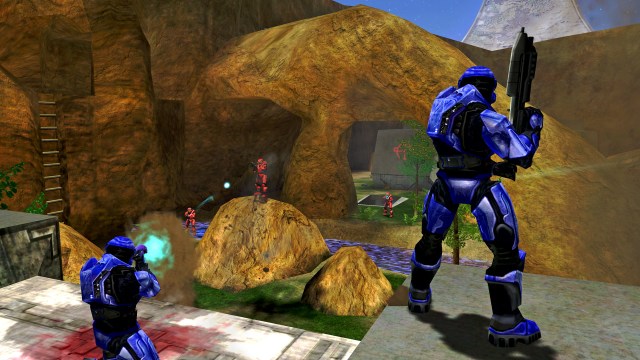
Release date: Nov. 15, 2001
Developer: Bungie
Platforms: Xbox, Windows PC, Mac OS X, and Xbox 360
The first Halo started on the original Xbox and Windows, introducing the world to the UNSC and the Spartan Program, alongside the now-legendary video game icon of Master Chief in its Campaign. Halo: CE also featured four player split-screen multiplayer, a revolutionary feature for its time, and system link 16-player LAN multiplayer lobbies.
2004: Halo 2
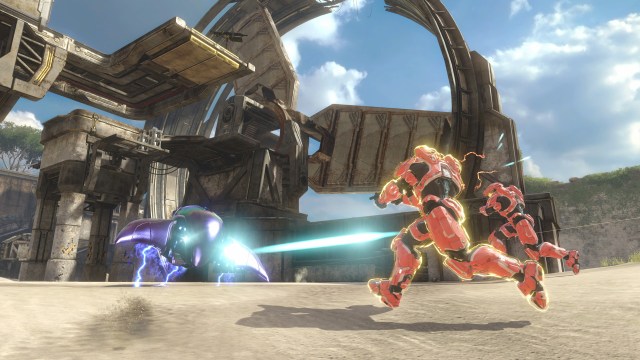
Release date: Nov. 9, 2004
Developer: Bungie
Platforms: Xbox and Windows PC
Following the success of Halo: CE, Halo 2 expanded upon the conflict between the UNSC, the Covenant, and the Flood. This was also the first entry with online multiplayer matchmaking, using Xbox Live and Games for Windows – Live, with services lasting until the discontinuation of the PC multiplayer services in June 2013.
2007: Halo 3
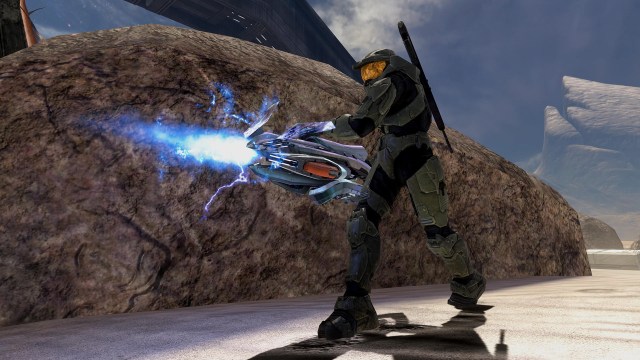
Release date: Sept. 25, 2007
Developer: Bungie
Platform: Xbox 360
Halo 3 is arguably the most iconic entry in the franchise and the most influential video game of 2007, topping the U.S. best selling charts on release and starting many trends still seen in modern day entries. The campaign saw players taking the role of Master Chief once again, but co-op allowed another player to take control of the Arbiter, the first playable Elite in franchise history.
New gameplay mechanics included dual-wielding weapons, a new equipment slot for items like drop shields and flares, and Forge, the custom map-making tool. The campaign also upgraded the co-op campaign to allow four players tackle the Flood together, another upgrade from previous entries, which only allowed up to two players in the campaign.
2009: Halo 3: ODST
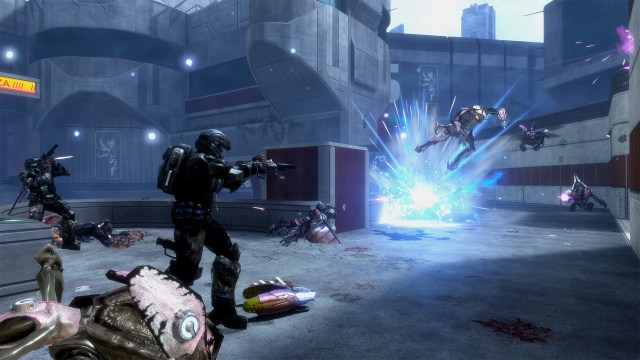
Release date: Sept. 22, 2009
Developer: Bungie
Platform: Xbox 360
Halo 3: ODST would be the first campaign without Master Chief, instead focusing on the aftermath of his actions. Players took control of Orbital Drop Shock Troopers, elite UNSC operatives tasked with eliminating the Covenant in New Mombasa after the events of Halo 2.
Gameplay revolved around the differences and issues presented to normal humans, not in Spartan Armor. Shields were replaced with a slower recharging stamina system, and health was measured with its own separate bar, which could only be replenished by finding limited first aid kits.
Halo 3: ODST would also introduce what would become the most iconic game mode in the entire franchise: Firefight. Firefight is a cooperative wave survival mode where players fight against AI-controlled enemies and try to rack up the most points before time expires or all players are eliminated.
Additionally, Halo Waypoint would launch as an Xbox 360 application, giving new lore details which tied all of the games together, stat and achievement tracking for all signed in accounts, and the Halo Community tab, for posting screenshots and video clips obtained in-game from the Theater mode.
2010: Halo: Reach
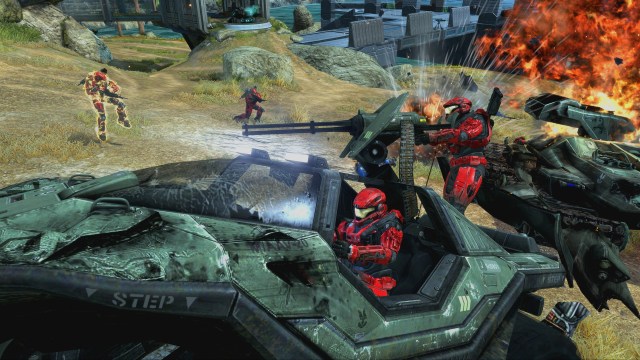
Release date: Sept. 14, 2010
Developer: Bungie
Platform: Xbox 360
Halo Reach would be Bungie’s last entry in the franchise, before it moved onto Destiny. Taking place before Halo: CE, the campaign saw players taking the role of Noble Six in an attempt to save the planet of Reach. The game would see Noble Team save the Pillar of Autumn UNSC ship, where Master Chief would later wake up to battle the Covenant.
New gameplay additions included playable Elites for the first time, alongside Invasion, a thematic game mode which sees Spartans and Elites assaulting or defending key objectives on select campaign maps, and Forge World, a blank map made specifically for an expanded Forge game mode.
2011: Halo: Combat Evolved Anniversary
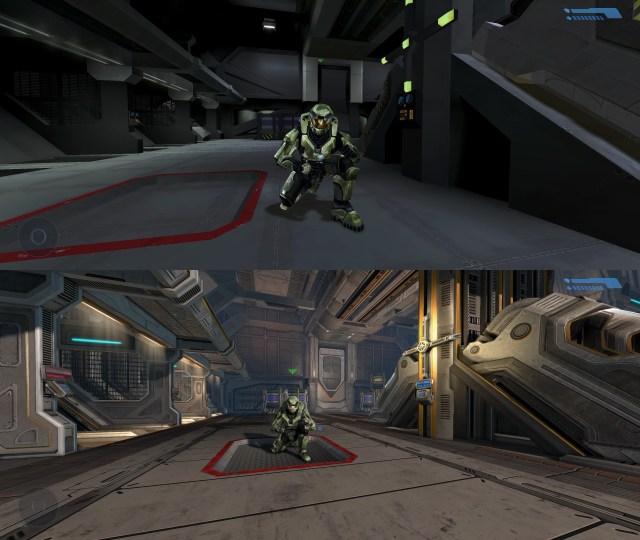
Release date: November 15, 2011
Developer: 343 Industries, Saber Interactive
Platforms: Xbox 360, Xbox One, Windows PC, and Xbox Series X/S
Halo: Combat Evolved Anniversary would be the first entry from 343 Industries, and a complete remaster of the first game. Included in the remaster was the ability to swap between the new and classic graphics by pressing the back button at any time without freezing or loading screens. Skulls were also added as an optional difficulty modifier, a feature absent in the original Combat Evolved.
Additional features included Xbox Kinect support, which allowed players to make voice commands instead of pressing the corresponding button, such as reloading, using equipment, or even pausing and resuming the game by speaking towards the device.
2012: Halo 4
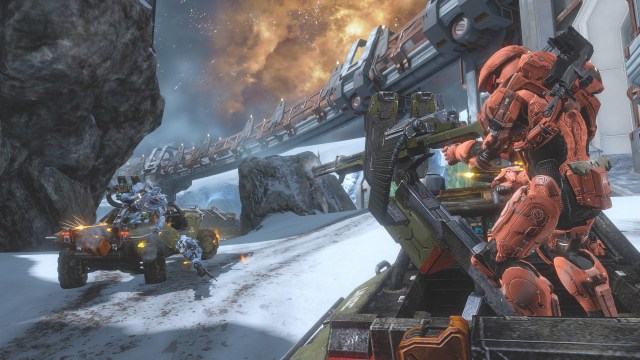
Release date: Nov. 6, 2012
Developer: 343 Industries
Platform: Xbox 360
Halo 4 pitted Master Chief against the Prometheans, a new enemy threatening humanity’s survival on the new Forerunner planet Requiem. Spartan Ops, a new episodic game mode, took Firefight’s place, featuring more objectives and a storyline throughout each map and mission. Additional lore could also be found on the Halo Waypoint application and website, which now serves as a central news website for all future updates and announcements.
2014: Halo: The Master Chief Collection
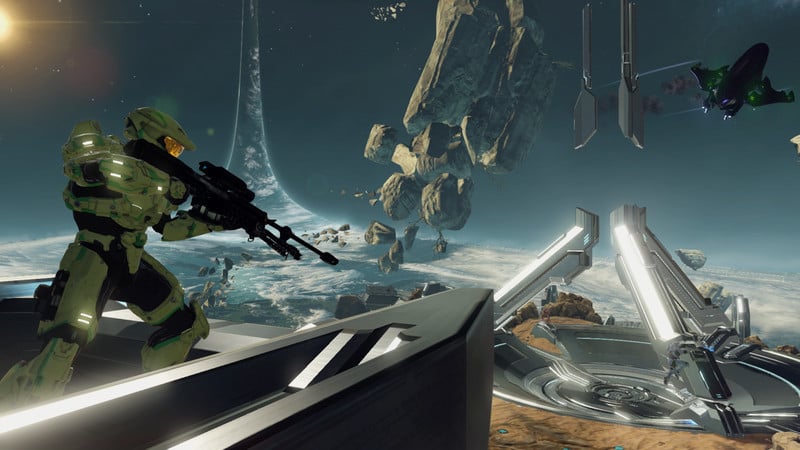
Release date: Nov. 11, 2014
Developer: 343 Industries
Platforms: Xbox One, Windows PC, and Xbox Series X/S
Halo: The Master Chief Collection compiled all previous entries in the series and brought them to PC for the first time, upgrading the graphics for each entry, and featuring fully functional co-op campaign and multiplayer modes for every single game.
New additions included the integration of the Halo Channel and Halo: Nightfall, the live-action series paired with the game’s release. Later in its lifespan, the Halo 5: Guardians multiplayer beta was also made available to all collection owners, before shutting down on the game’s official release.
2015: Halo 5: Guardians
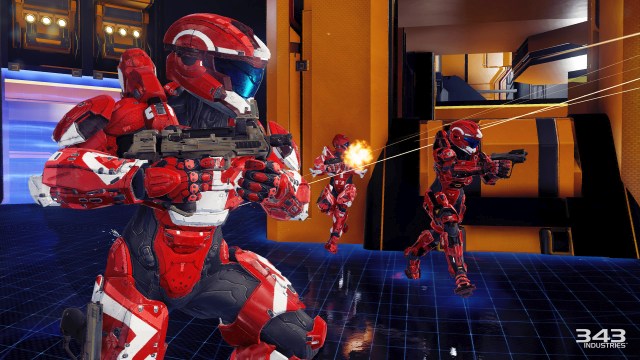
Release date: Oct. 27, 2015
Developer: 343 Industries
Platform: Xbox One
Halo 5: Guardians improved the campaign to include a fireteam for protagonists Master Chief and Jameson Locke, as the story swapped perspective with each mission. These fireteam members could be commanded to perform simple commands or actions in single player. Co-op allowed players to pick their fireteam character, as each Spartan came with their own unique passive attributes, armor abilities, and default weapon loadouts.
Multiplayer introduced the Warzone game mode, a PvPvE game mode featuring a large scale map with multiple objectives to fight over. Players would fight to control neutral bases scattered across the map, eliminate computer controlled bosses, and spawn weapons and vehicles using mode-exclusive points to destroy the enemy base. This game mode would also be expanded into Warzone Firefight, creating the largest co-op Firefight game mode to date, with up to eight players fighting against the AI.
Social features were also expanded with Spartan Companies, a clan system allowing up to 100 players to team up for the purpose of completing large challenges and unlocking company-exclusive rewards.
2021: Halo Infinite
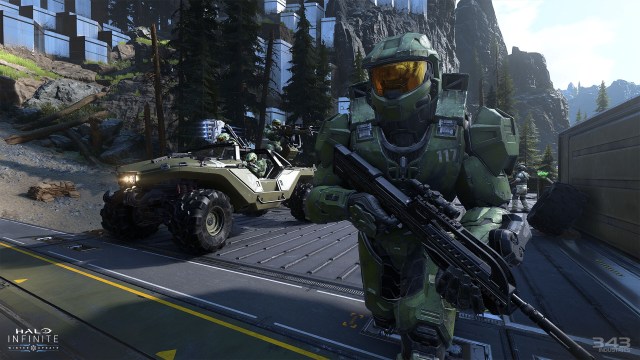
Release date: Dec. 8, 2021
Developer: 343 Industries
Platforms: Windows PC, Xbox One, and Xbox Series X/S
Halo Infinite is the latest entry into the series, with Master Chief now fighting against the Banished on Zeta Halo. It features an open-world structured campaign, where players can choose story missions or tackle side objectives at their own pace.
Multiplayer has seen vast improvements across the board for all game modes. Boot camp was introduced to help new players to the series with computer bots for practice matches. New armor powers like the Repulsor and Grappleshot has given players new ways to maneuver around the battlefield and counter old Halo strategies, like grenade spam.
Content is being delivered by a seasonal battle pass, which does not expire at the end of the season. The battle pass can be revisited at any time, regardless of when players first started playing Halo Infinite or the current season of content. Currently, Halo Infinite is on its fifth season of content, with new features to the franchise like Forge AI, where content creators can now place allied and enemy NPCs on their own custom maps, greatly expanding the custom game mode potential. Additional content and game modes like Firefight King of the Hill will also be added at a later date in the season.
Halo spin-offs
Halo has also featured a number of spin-off games that stray from the standard first-person shooter format.
- (2009) Halo Wars: A real-time strategy game where players commanded the UNSC from a bird’s eye-view against the Covenant 20 years before Halo: Combat Evolved
- (2013) Halo: Spartan Assault: A twin-stick arcade shooter taking place between Halo 3 and Halo 4, featuring two player co-op and version cross-play, where players could pause missions on one device and resume them later on another.
- (2015) Halo: Spartan Strike: A direct sequel to Spartan Assault, featuring new mission objectives and the Skull difficulty modifier system from the main shooter series.
- (2017) Halo Wars 2: A sequel to Halo Wars, with new leader abilities, game modes for co-op or competitive play, and Blitz, a new mode using collectible cards and a deckbuilding mechanic instead of following the standard RTS rules.
- (2017) Halo Recruit: A virtual reality experience where players learn about Halo lore and shoot enemies in a simulated firing range.
- (2018) Halo: Fireteam Raven: An co-op arcade rail shooter for up to four players which includes real-life controller recreations of the mounted machine gun and assault rifle and QR code leaderboard tracking features with Halo Waypoint.


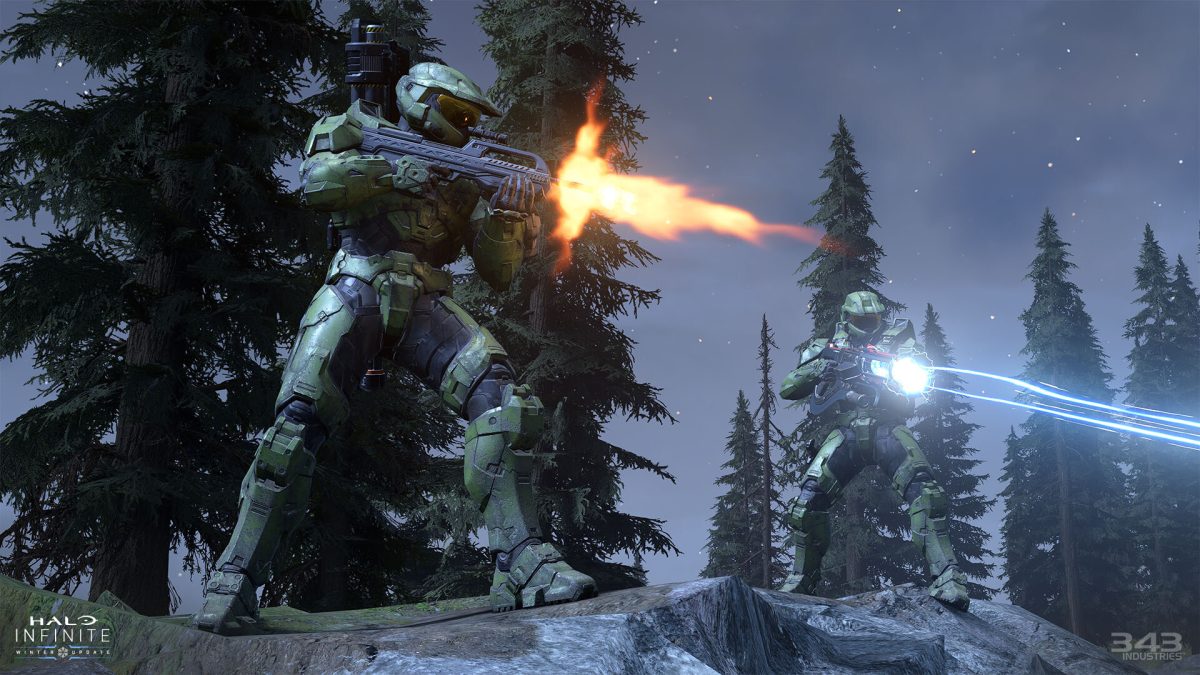
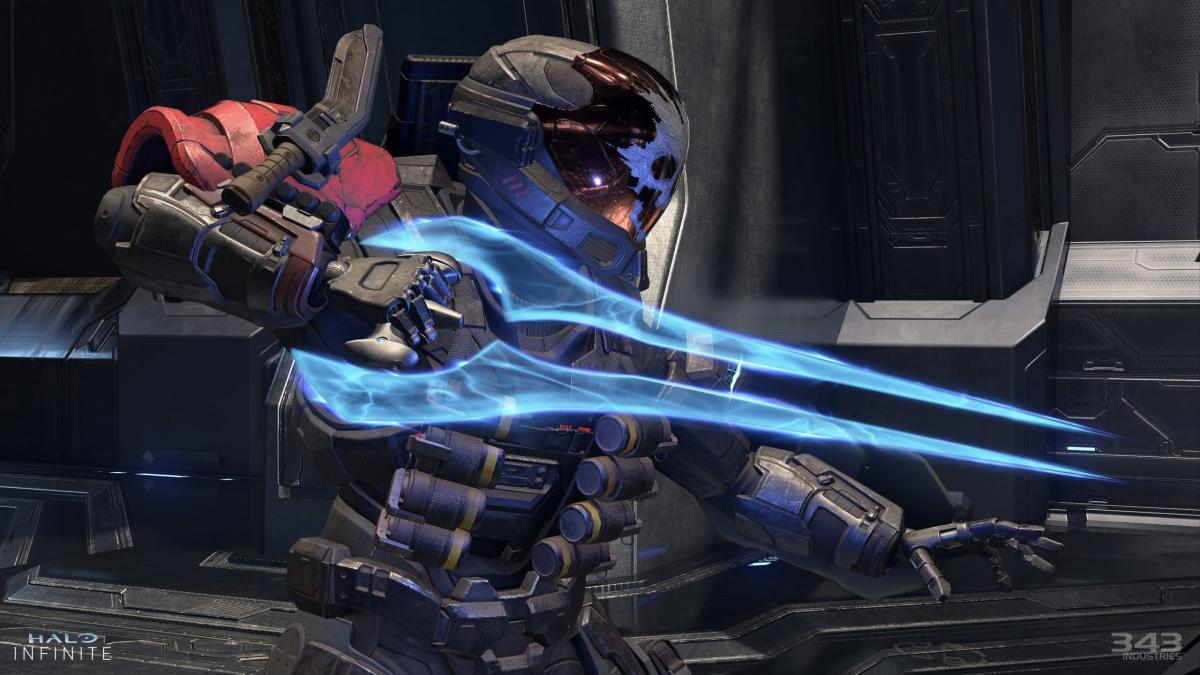
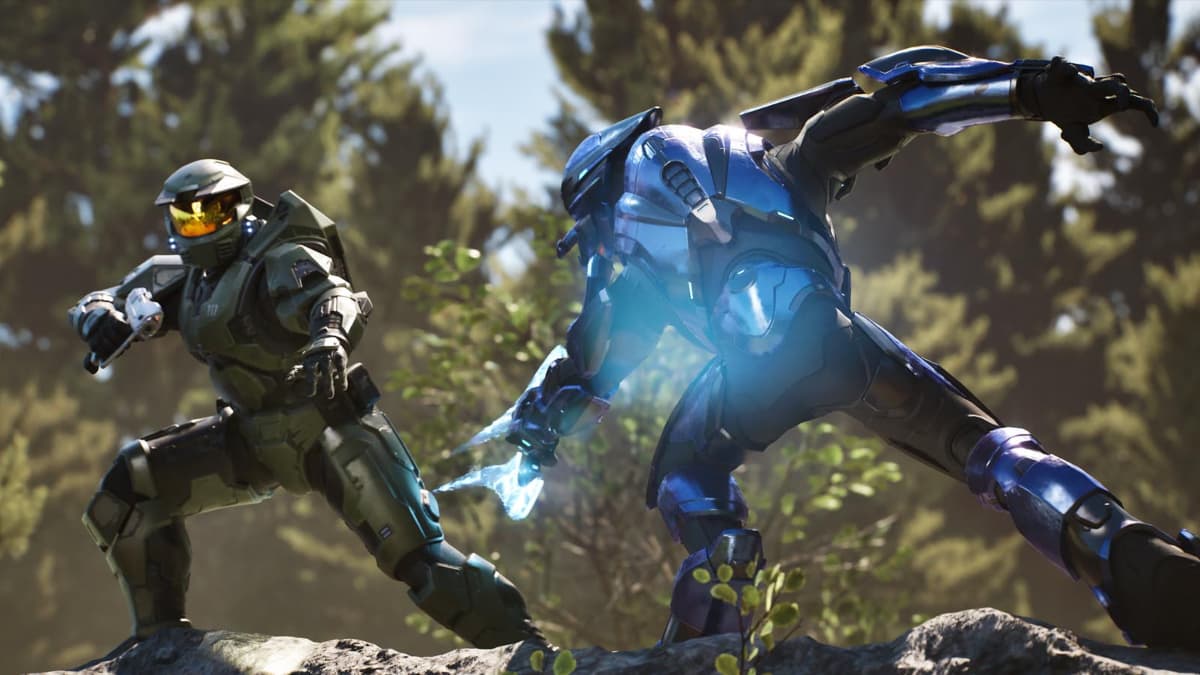
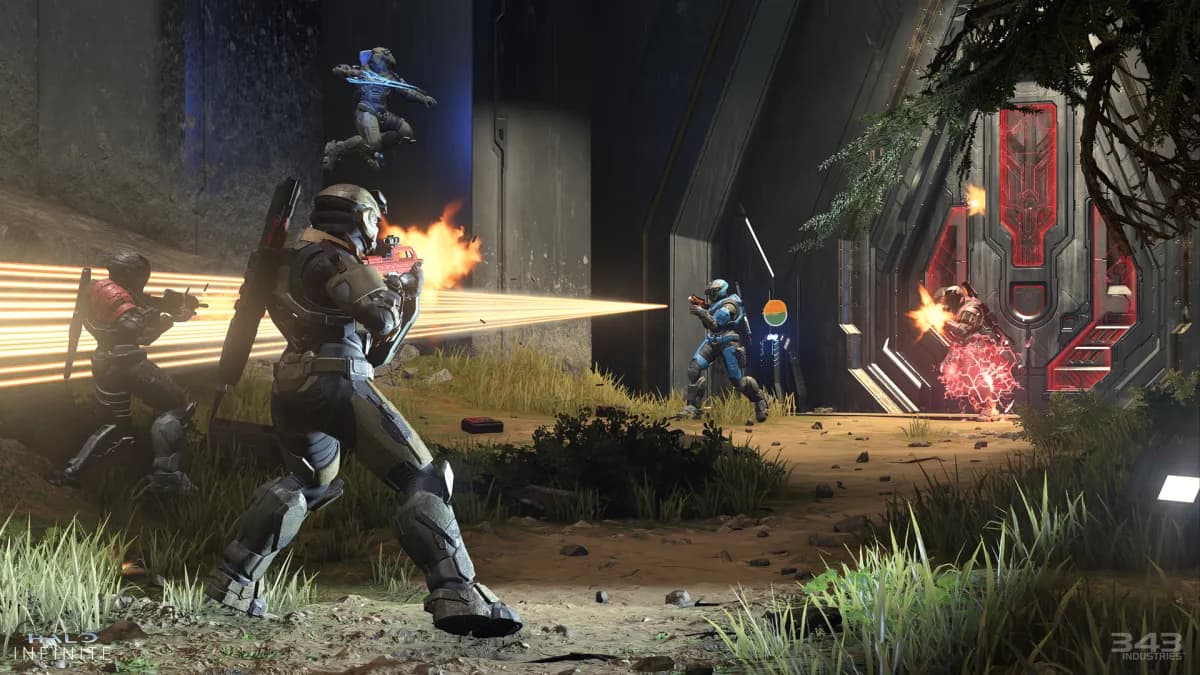

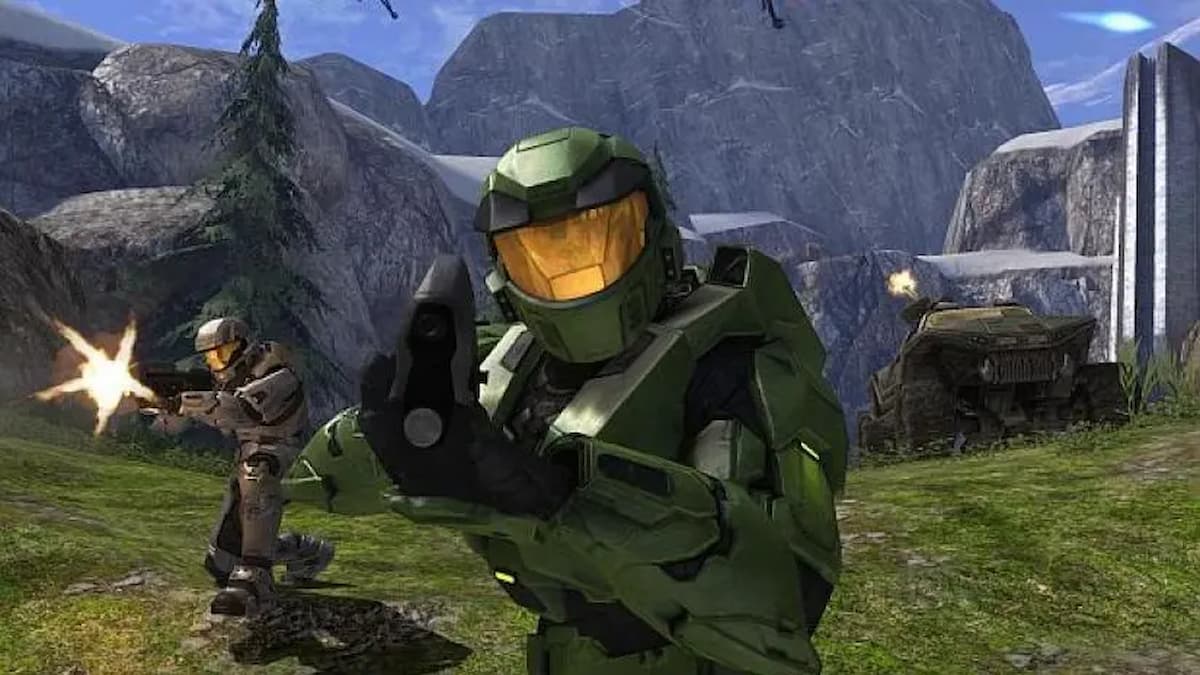
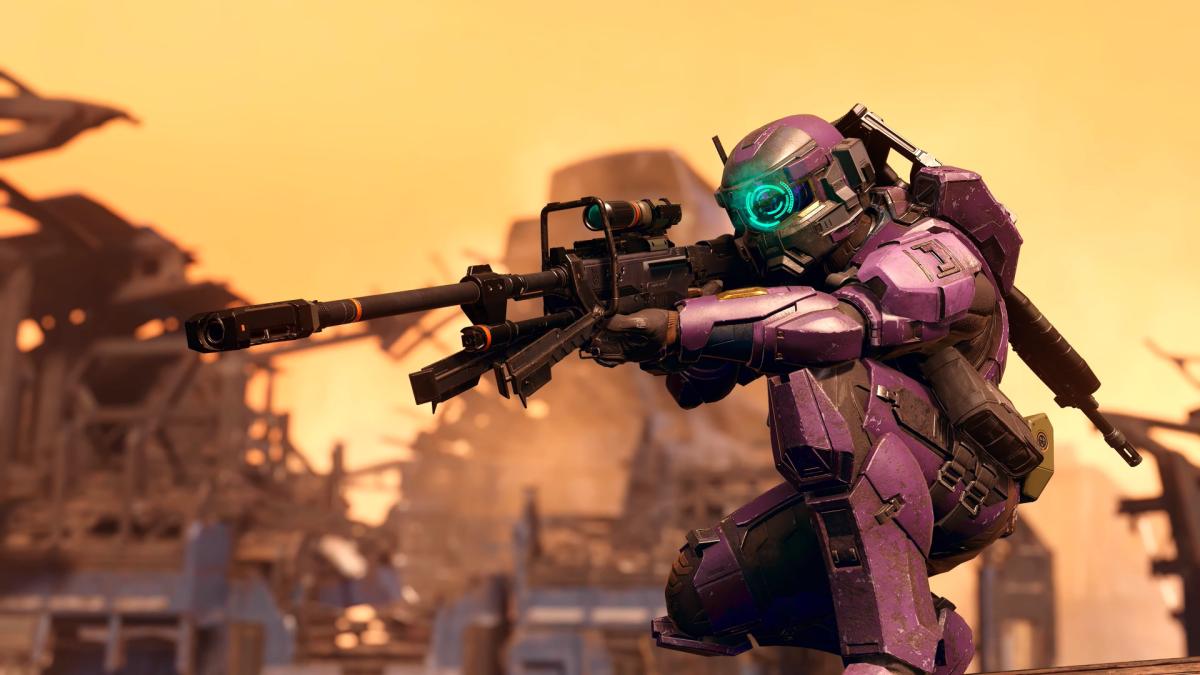
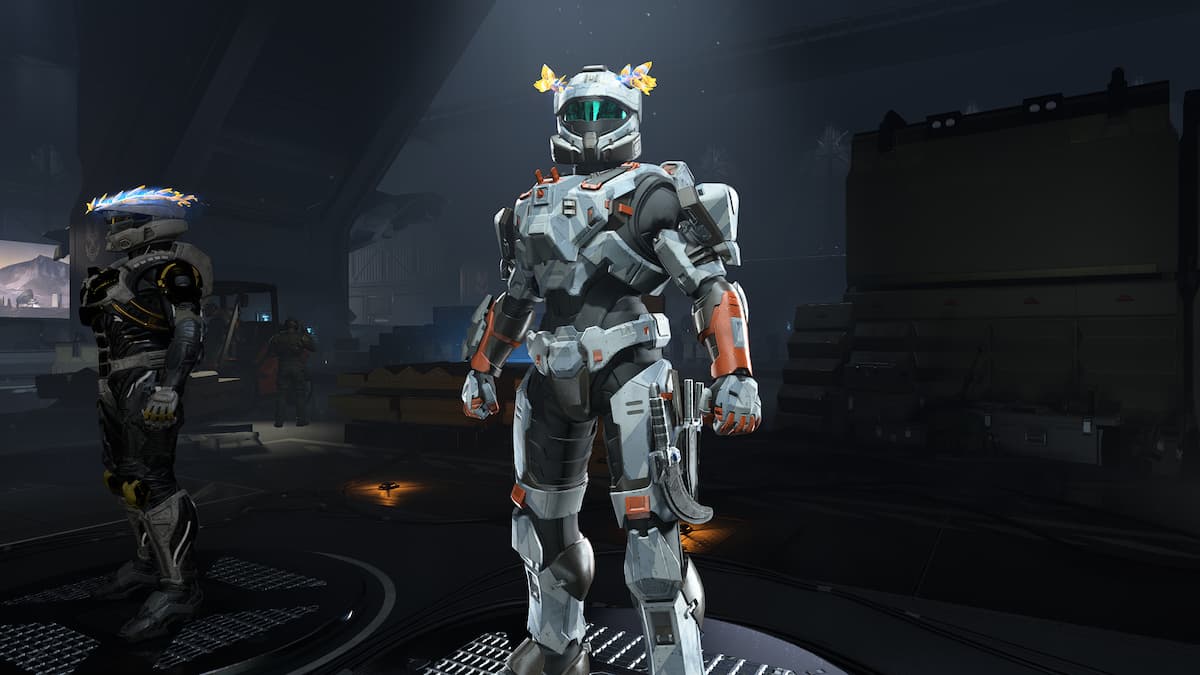
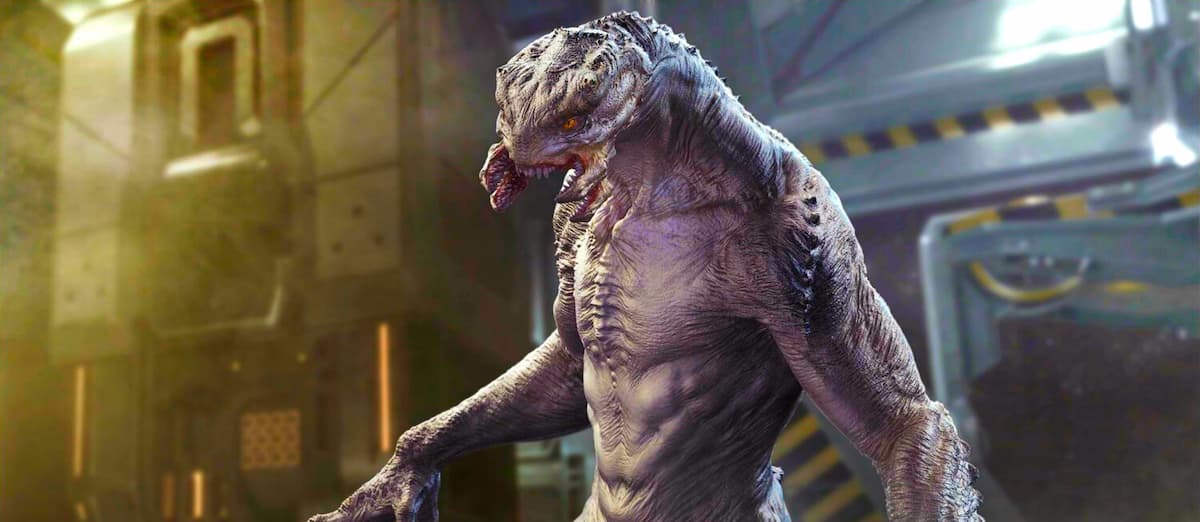
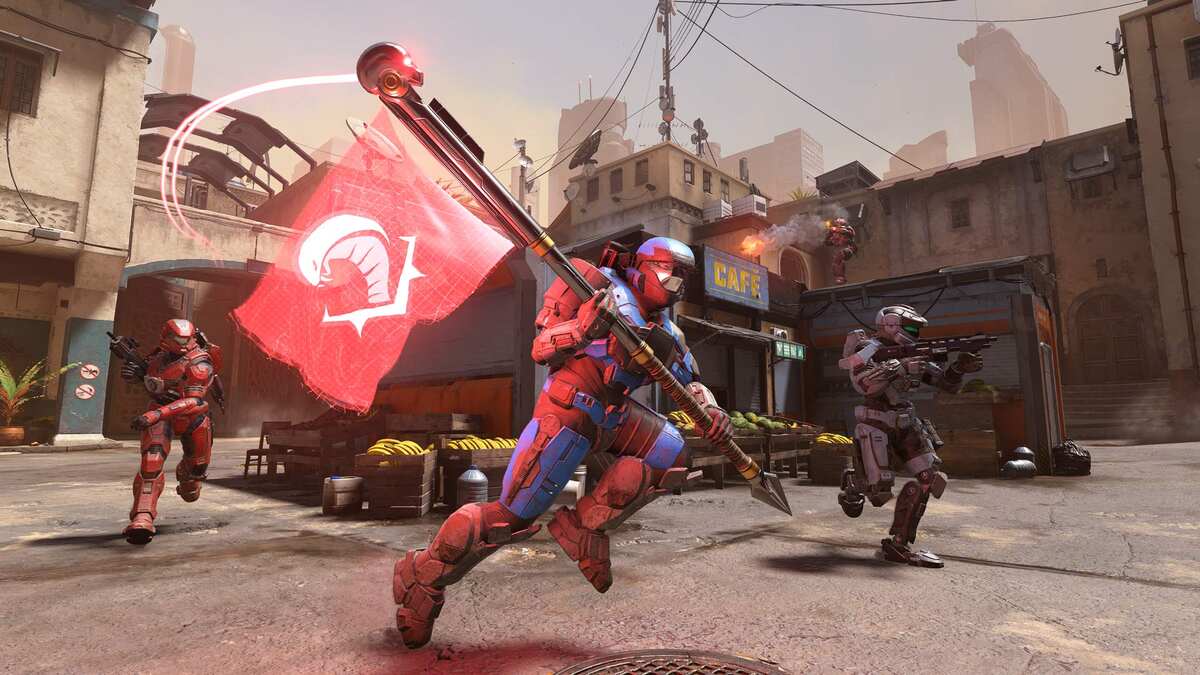
Published: Oct 20, 2023 04:23 am